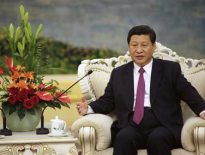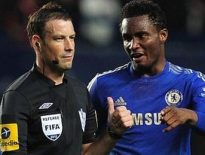With just over a week to go before the US presidential election, both candidates are criss-crossing the country in a frantic final push to win what looks set to be a very close contest. How much stamina does it take to become president?

Picture the scene. You might have had only four hours sleep for the last five nights. Perhaps only four days off in the past two months. You’ve been to more than 10 states in the last 30 days. And you’re gearing up for an all-nighter, or a series of them, for the final push.
Such is the lot for a presidential contender at this stage in the contest.
Then there’s the added pressure of being under constant scrutiny, performing before huge crowds, and the ache in your arm from shaking thousands of hands.
“We are going to pull an all-nighter. No sleep,” said President Obama on Wednesday at the start of what he called a “48-hour fly around, campaign marathon extravaganza” which took him to no less than six battleground states, as well as to LA for a talk show, and on to Chicago to cast his early vote.
Romney meanwhile hopped from Colorado to Nevada to Iowa, before embarking on a multi-stop bus tour through the daddy of swing states, Ohio.
The schedules are crazy. The routes look like a spaghetti junction.
“It’s a flat-out sprint” from here to the finish line on 6 November, says veteran campaign scheduler Paige Reffe, who has worked with four Democratic presidential candidates, from Gary Hart in 1984 to John Kerry in 2004.
“By the third or fourth state, it’s tough to even remember where you are,” he says. “You’re just riding on adrenaline.”
“Everybody who has worked in politics knows what a huge variable it is, and how tired people get,” says James Fallows, national correspondent for The Atlantic, who worked with Jimmy Carter during his 1976 election campaign – but he says the stamina required is under-appreciated by both reporters and the general public.
Fallows was in his late 20s at the time, and says it felt like he was ageing a year with every day that passed.
“There was essentially no day or night,” from the first presidential debate until election day, he says. “The night-times would be on the airplane, or they would be from 01:00-04:00 in some godforsaken hotel.”
He recalls the last 48 hours of the campaign as just a blur.
It is hard to think of a job which requires a comparable combination of stamina and being “switched on” all the time, he says – an army general at war might be the closest analogy.
“It’s incredibly taxing,” agrees Logan Walters, who was George W Bush’s personal aide for five years, travelling by his side constantly during his campaign against Al Gore in 2000.
Walters’ job was to help with the practical day-to-day needs, such as food, stops and sleep – it is a role often referred to as “the body man”.
“It’s totally exhausting,” says Walters, who was just 25 at the time of the campaign.
“But it’s also really exciting. There’s a lot of adrenaline. This is what you’ve been working for, so you just push it aside.
“It doesn’t do any good to complain at this point – it’s what you signed up for.”
The intensity of the campaign trail tends to foster a kind of “fox-hole humour,” among those sharing the experience says Fallows – and this helps pull you through the tough times.
Life on the road brings many practical problems, such as when and where to eat, and how to do the laundry, when you never stop anywhere long enough.
George W Bush ate peanut butter and jelly sandwiches to keep him going; his father, fried pork rinds; Obama loves ice-tea; John Kerry, Diet Coke.
As for clothes, they often get mailed ahead – or ironed several times over.
“I certainly pressed my fair share of shirts and suits,” says Walters.
Things are a bit more comfortable, and transport logistics simpler, for an incumbent president, because they get to travel in Air Force One. It has a decent pull-out bed, is a better work environment than a standard plane, and has space for some simple gym equipment, says Reffe.
But all this sleep deprivation and exhaustion comes with some obvious costs.
“One tired foolish statement wipes out weeks of work. The proper scheduling, proper use of the human element, is about the most important thing a campaign can do,” says Reffe.
“It’s like keeping a horse fed and watered,” he says. “Eating, sleeping, thinking makes for a better candidate.”
This is easier said than done, and there is always a tension between the HQ and the local campaign team, who want to pack in as much as possible when the candidate visits.
Absolutely everything needs to be scheduled for, says Reffe – from food, to sleep, to exercise, and even a phone call between the candidate and their partner.
“That’s the reality – you have no control over your life anymore,” he says. Those who run for high office tend to be “ego-driven” and used to being in charge, so they find this particularly difficult to deal with, he adds.
Each candidate has a different body clock – and you try to play to their strengths, says Reffe.
Bill Clinton was famed for his boundless energy, and needed very little sleep, staying up late into the night, refreshing himself with 20-minute power naps during the day.
Democratic hopeful Gary Hart hated the mornings, whilst George W Bush was more the early-to-bed early-to-rise type – staff aimed to have him tucked up by 10:00pm, where possible, says Walters.
One strategy for dealing with the strain and keeping up stamina is exercise.
Romney is known for working out on the elliptical exercise machine, and Obama likes to play basketball. “It’s not accidental that they are both impressive physical specimens,” says Fallows.
“I think we will see more and more people who look like positive outliers for their age group, just because that is what it will take to run for office.”
“There’s no question that you have to be in good shape physically to run for the presidency,” agrees Michael Dukakis, who ran against George Bush Snr in 1988.
“I carried a set of hand weights with me on the campaign trail and power walked at the end of the day two or three miles.”
George W Bush would also try to exercise every day, either running outside, or on a treadmill in his hotel room.
But no matter how tough you are, there are times when the strain takes its toll.
The first sign is often hoarseness of the voice – something noticeable in President Obama’s voice in recent days. Bill Clinton suffered from laryngitis on the campaign trail in 1992 and was told by doctors to rest his voice.
“There are a lot of candidates who get completely run down, and they have to take a week off – and that’s the kiss of death,” says Richard Ben Cramer, author of What it Takes: The Way to the White House.
Richard Nixon was a case in point in his 1960 presidential campaign, when he pledged to go all 50 states. “In the aviation environment, that was a really gruelling, stupid thing for him to do,” says Fallows.
“He just got worn out and he got sick and jammed his knee in a door and had to go to hospital for about a week with a great swollen knee in the middle of the campaign.”
Many believe that the rigour and stamina of a campaign trail is a good test for a would-be president, weeding out those would not be able to hack it.
Others disagree. “Certainly one could imagine a lot more important criteria than stamina and shaking a lot of hands,” says Prof Sydney Finkelstein, an expert on effective leadership at Tuck School of Business at Dartmouth.
He cites open-mindedness, team-building skills, adaptability, and the ability to inspire and communicate, as more useful qualities.
Michael Dukakis, who lost his bid for presidency, says with hindsight, if there is anything he would do differently, it would be to campaign less – not more.
“In retrospect, I would have spent more time thinking about strategy and approach, and somewhat fewer campaign appearances.”
“Getting off the campaign trail for a half-day a week would have been very helpful,” he adds, saying that a regular Monday morning meeting with his running mate Lloyd Bentsen and campaign staff would have been a good idea.
One can only begin to imagine what might be running through the minds of Barack Obama and Mitt Romney, through the haze of exhaustion and the rush of adrenaline, as they push towards the finish line.
There are just eight days to go, and everything to play for in this election. It is so close – few dare to call which way it will go. It is a ground-war to get out as many votes as possible in the key swing states that will decide who wins.
Anyone who runs for the presidency has both amazing stamina and strength of character, says Cramer.
“They are remarkable people, even if it doesn’t look like it. If one of them lived next to you, you’d be telling everyone ‘You’ve got to meet these people’.
“You’ve got to take your hat off to them – to anyone who gets through this process.”





